09
Central Asia: Challenges Intensify, Geopolitics Doesn’t
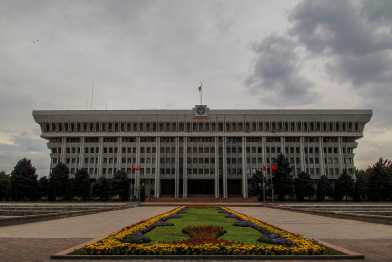
Russia’s predominant role in Central Asia is set to decline after its war in Ukraine. This creates an urgency as well as an opportunity for the Central Asian states to diversify their external ties, argues Chatrina Schumacher in this CSS Blog. Many potential partners seem keen to fill some of the void, but their actual engagement remains limited. The region’s relative stability has priority which favors the ruling elites’ authoritarianism. Conversely, this may foster instability in the long run.
Tense Triangle in Asia: The South Korea Factor
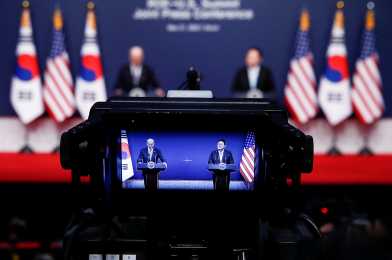
South Korea and its triangular relationship with the US and North Korea are critical for security and stability in Asia. Understanding South Korea’s shifting domestic and international outlook is important for European states, looking for new cooperation opportunities and partners in Asia, argues Linda Maduz in this CSS Policy Perspective.
US-China “Tech Decoupling”: A Swiss Perspective
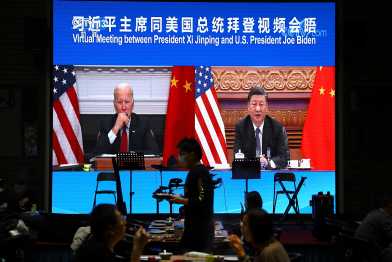
A partial technological decoupling of the United States and China is already under way. Switzerland will also feel the ripple effects, argues Sophie-Charlotte Fischer in this CSS Policy Perspective.
Triple Nexus in Fragile Contexts: Next Steps
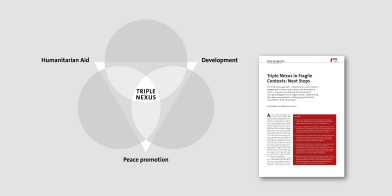
The triple nexus approach – understood as a more coherent engagement by humanitarian, peace, and development actors – is necessary to deal with the complexity of third-party engagements in fragile contexts. Implementing the triple nexus approach is challenging yet pivotal for more effective third-party impact, argue Fritz Brugger, Joane Holliger and Simon J. A. Mason in this CSS Policy Perspective.
Mediation Space: Addressing Obstacles Stemming from Worldview Differences to Regain Negotiation Flexibility

In numerous intra-state conflicts, societies are polarized along worldview divides and conflicting parties disagree over what kind of society and state they want to build. Such questions can deeply divide societies and block political processes and mediation efforts. This CSS Mediation Resources suggests a method for addressing such blockages by analyzing the principal challenges that can arise from worldview differences in conflicts and conflict transformation.
When Crises Collide: Energy, Security, Climate Change

Geopolitical instability underpins the short-term energy-saving measures adopted in Europe in preparation for winter. Climate change’s impact on energy insecurity highlights an urgent need to simultaneously integrate longer-term climate mitigation measures, argue Christine Eriksen and Andrin Hauri in this CSS Policy Perspective.
Evaluation des Krisenmanagements des Kantons Graubünden in der Coronavirus-Pandemie
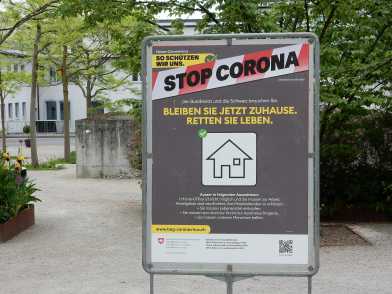
This CSS Risk and Resilience Report analyzes the crisis management of the canton of Grisons during the coronavirus pandemic from the beginning of the international spread of the new virus until the lifting of the special situation by the Federal Council in April 2022. The focus of the evaluation is on the further development of the cantonal crisis organization with regard to the entire spectrum of threats in the canton and the cantonal cooperation with federal authorities and other cantons.
Sicherheits- und verteidigungspolitische Kooperation der Schweiz in Europa: Optionen zur Weiterentwicklung

The Russian war of aggression against Ukraine is shaking the foundations of the post-1989 European security order. The states of Europe are re-emphasizing military preparedness as well as economic and social resilience. NATO is experiencing a renaissance as part of these efforts, as exemplified by the accession of Sweden and Finland. The EU appears to be adapting to the new situation as well, seeking a complimentary position vis-à-vis NATO.
Finland’s NATO accession
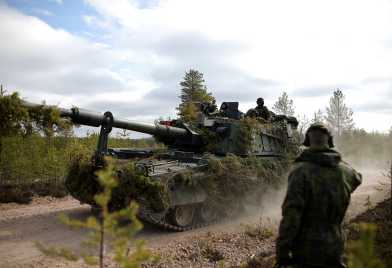
While formerly neutral, Sweden and Finland have jointly decided to join NATO in the wake of Russia’s invasion of Ukraine. Finland’s accession in particular will impact the military balance in the Baltic-Nordic theater of contention between Russia and the alliance. Joining NATO would be the culmination of a longer alignment process for Finland, argue Eemeli Isoaho, Niklas Masuhr and Fabien Merz in this CSS Analysis.
NATO’s Strategic Concept: Tempered Ambitions
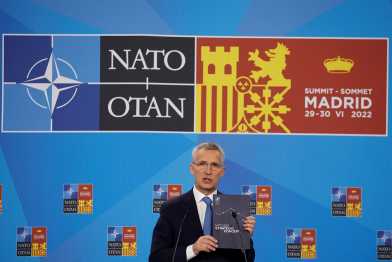
The Strategic Concept seeks to prepare NATO to deal with the deteriorating security environment over the past decade characterized by Russia’s aggression against Ukraine and the rise of China. Its implementation hinges mainly on the modalities of the alliance’s enhanced deterrence and defense, argues Henrik Larsen in this CSS Analysis.